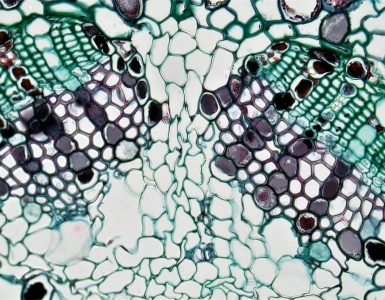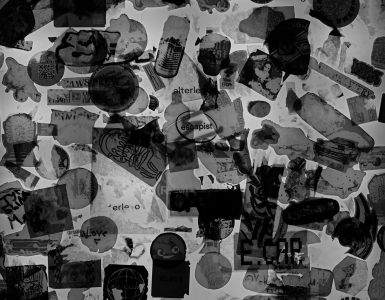Ever felt like you’ve got a pretty solid grasp on the world? Think again. We’re surrounded by seemingly ordinary things that, upon closer inspection, reveal bizarre quirks and surprising histories. Let’s dive into some “expected” facts, presented in a way that might just rearrange your mental filing cabinet.
The Surprisingly Sentient Sloth
We all know sloths are slow. But did you know their slowness is a surprisingly effective defense mechanism? Their camouflage is so good, and their movements so deliberate, that they’re practically invisible to predators. They’re not just sluggish; they’re masters of slow-motion survival. Even more astonishing: sloths can hold their breath for an incredible amount of time, far exceeding what you’d expect from a land mammal. This comes in handy when they need to submerge themselves completely in water to avoid threats.
The Unexpectedly Agile Octopus
Octopuses are famous for their intelligence, but their physical capabilities are equally mind-blowing. They’re masters of disguise, changing color and texture in a blink to blend seamlessly with their surroundings. Think of them as nature’s ultimate shape-shifters. But it’s their locomotion that’s truly remarkable. They can jet propel themselves through the water, crawl on the seabed using their arms, and even “walk” on land for short periods. These aren’t just slimy brains; they’re incredible athletes.
The Case of the Kleenex and the Titanic
Here’s a fun connection you might not know about: Kleenex tissues weren’t initially designed for blowing your nose. They were originally marketed as facial tissue for removing makeup. But this was also around the time of the Titanic. After the tragedy, survivors used the soft tissues to keep warm. It’s only through the tragedy that people truly discovered it as a disposable tissue, thus shifting entirely the marketing focus for this product!
Bananas: More Than Just a Potassium Bomb
Bananas are often touted for their potassium content, but their history is just as fascinating. The Cavendish banana, the ubiquitous yellow fruit we know today, is actually a clone. The Gros Michel banana (the original sweeter type) was wiped out by a fungal disease in the mid-20th century. This means nearly every banana you eat is genetically identical to every other banana. Think about that the next time you peel one. A monoculture makes them vulnerable to diseases as well, which is potentially a huge problem!
The Unlikely Hero of the Printing Press: Wine
Gutenberg’s printing press revolutionized communication, but its success had a surprisingly unexpected ingredient: wine. Wine presses, with their ability to apply even pressure over a large area, provided the crucial mechanism for applying pressure to the printing plates. This seemingly straightforward connection has far-reaching influence on our history of information access.
The Surprisingly Strong Spider Silk
Spider silk is stronger than steel, pound for pound. Seriously. Scientists are constantly exploring ways to harness its incredible strength for various applications, from bulletproof vests to surgical sutures. It’s strength isn’t in its bulk, but in its micro-structure. This is a feat of biological engineering that still boggles our minds.
The Unforeseen Consequences of Raisins
Raisins seem innocuous, right? Wrong. They’re responsible for a significant number of choking incidents, particularly in children. The small, sticky nature of raisins makes them deceptively dangerous to those with less chewing and swallowing control. So, another thing to be mindful of the next time you reach for that trail mix!
The Unexpectedly Loud Silence of Space
We’re commonly told that space is a vacuum, and so it’s often said that it’s silent. This is true only in a literal physical manner. But did you know that the idea of the “silent” vacuum is a misconception? Sound waves need a medium to travel through, such as air or water. However, the absence of sound is still a profound and somewhat unexpected element of the cosmic landscape.
The Hidden History of the Keyboard Layout
The QWERTY keyboard layout, the one you’re using right now, isn’t designed for speed or efficiency. It was actually designed to prevent early mechanical typewriters from jamming. Keys that were frequently used together were placed far apart to slow down typing and avoid mechanical problems. Ironically, this inefficient design has persisted for over a century.
The Surprisingly Sweet Side of Celery
Celery often gets a reputation for being bland, but negative caloric values are commonly attributed to this food. This is because many people believe that the calories burned by processing celery are more than what you get from eating it. It’s not quite as simple as that. However, the effort it takes to consume this vegetable may make it a rather unique healthy food option.
The Unlikely Connection Between Sleep and Creativity
Sleep isn’t just for resting; it’s crucial for memory consolidation and creative problem-solving. During sleep, our brains process information and make connections that we wouldn’t be able to make when awake. That midnight brainstorm? Your subconscious may have been at work while you were catching some Z’s.
The Unexpected Benefits of Yawning
Yawning is often associated with boredom or tiredness, but it might actually play a role in regulating brain temperature and alertness. Some studies suggest that yawning helps cool down the brain, keeping it functioning optimally. It’s a seemingly simple act with a surprisingly complex function.
The Astonishing Resilience of the Tardigrade
Tardigrades, also known as water bears, are microscopic animals that can survive almost anything. Extreme temperatures, radiation, and even the vacuum of space pose no threat to these resilient creatures. Their survival mechanisms are a testament to the remarkable adaptability of life on Earth. What Are the Most Amazing Animal Adaptations?
This is just a small glimpse into the world of unexpected facts and surprising connections. The more we learn, the more we realize how much we don’t know, and how many hidden wonders await discovery. So next time you encounter something seemingly ordinary, take a moment to look a little closer. You might be surprised at what you find.























Add comment